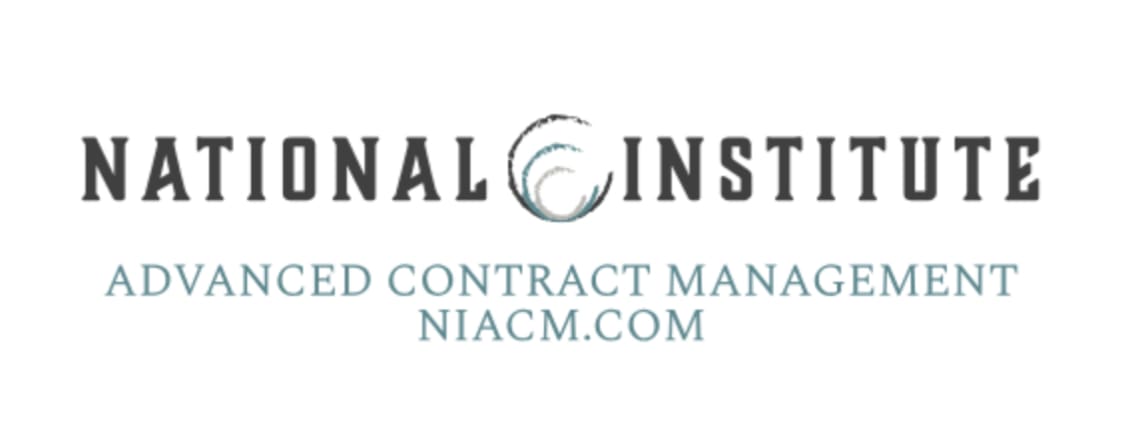Advanced Construction Project Management Course
Upon completion of this four day certificate program, you will have a very clear understanding on how cotract terms and conditions interact with the commercial aspects of a budget or estimate. Procurement is key, making sure risk is correctly allocated at the onset will foster success.
The course is very interactive with the instructor promoting and initiating open dialogue participation.
Please review the content (below).

Day 1 - Understanding & Managing the Contract
Module C1 - Introduction and Contract Formation
- Why is a contract required, and how do contracts function
- Contract and/or Agreement assembly
- Interdependencies within contracts
- Standard forms of Agreements / Contracts CAD and some insight USA
- Putting the contract into use
- Owner / Contractor roles understanding the contract forms and viewpoints
Module C2 - Contract Types
- CAD / USA delivery models (examples provided)
- Master Services Agreements (examples provided)
- Contract payment types (in respect of contract models)
- In-depth analysis of the various delivery models
- How / when to use a specific contract model
- Contract negotiations
Module C3 - Analyzing a contract document
- Important Clauses of a contract – in-depth review
- Comparative analysis
- Negotiation analysis
- Subcontracts, purchase orders, and consultant agreements
Module C4 - Contract Administration
- Submission and approval documents
- Governance and control
- Guarantees and Insurance
- Construction kick-off meeting, correspondence and discussions
- (multiple documents and examples provided)
Module C4 - Claims Management
- Nature and types of claims
- Understanding claim management through contracts
- Effective claim submission and presentation
- Preventing claim escalation Case studies and discussions
- Dispute Resolution and models of resolving
Day 2 - Effective Procurement, Tendering, and Vendor Selection
MODULE P1 WHAT IS THE NEED FOR PROCUREMENT
- What is the purpose of a business/strategy
- Dealing with the problem of being a “go-between”
- Solicitation process and cycle of procurement
- Positioning procurement within the context of a project or program
- Vision, Mission, and Value of procurement
- Procurement Structures
- Where to find performance improvement
MODULE P2 DEVELOPING THE PURCHASING STRATEGY
- How to reach the internal customer
- Developing procurement documents
- Importance of being involved in creating the specification/drawings and design
- Supplier selection methodology
- Criteria for pre-qualifying suppliers
- Integrating the supplier selection process
- Positioning your need and your value against the market
MODULE P3 SELECTING THE RIGHT SUPPLIER & EVALUATING PERFORMANCE
- Conditioning the supplier to meet your requirement
- The total cost approach to purchasing
- Analysing Cost
- Analysing Value
- Hidden costs
- Life cycle costing
- Using Price indices
- Performance evaluation KPI and SLA (applied to a contract)
MODULE P5 TENDERING AND ANALYSING THE BID
- Process needs
- Types of solicitations
- Evaluating a bid objectively / evaluation committee
- Terms and Conditions of a procurement (special clauses)
- Standard procurement contract clauses
- Expediting the agreement
- What if the contract fails to deliver – legal issues
Day 3 - Commercial Cost Management & Quantifying Risk
Commercial Cost Management Module B
- Budgets vs Estimate
- Analysis of various types of estimating processes
- When budgets are used, when estimates are used
- Why create budgets? Why spend time and money?
- Create a budget, then design to it
- Construction delivery models and commercial agreements
- In-depth review and exampling of commercial agreements
- Budget Classes and variables
- Budgeting process during the life of a project
- Classes of budgets and their purpose
- Preparing a budget
- Commercial Management
- Stipulated price
- Guaranteed maximum price.
- Progressive design-build lump sum price
- Use and purpose of contingency
- Elemental breakdown
- Square foot cost and relationships in budgets
- Budgeting process during the life of a project
- Change order
- Effects of Multiple Change Orders
- Factoring change order into a budget
- Change orders vs. program changes
- What is not a change order (but a program change)
- Cost Metrics
- The relationship between time and money
- Earned value management.
- Payment process and alignment with project budgets
Day 4 - Workshops & Examples
Workshops & Examples
- Leading examples (mock session) is preparing documents for a project. Actual contract preparation, procurement and negotiation sessions will be completed on day 4
- The concluding day 4 will be an day of intense workshops and example(s) trials. Using the educational sessions of the first three days, we will apply our learings to real life construction issues and challenges.
- Day 4 workshop(s) will include a special segment on commercial cost structure in respect of contract discussion and negotiations.
